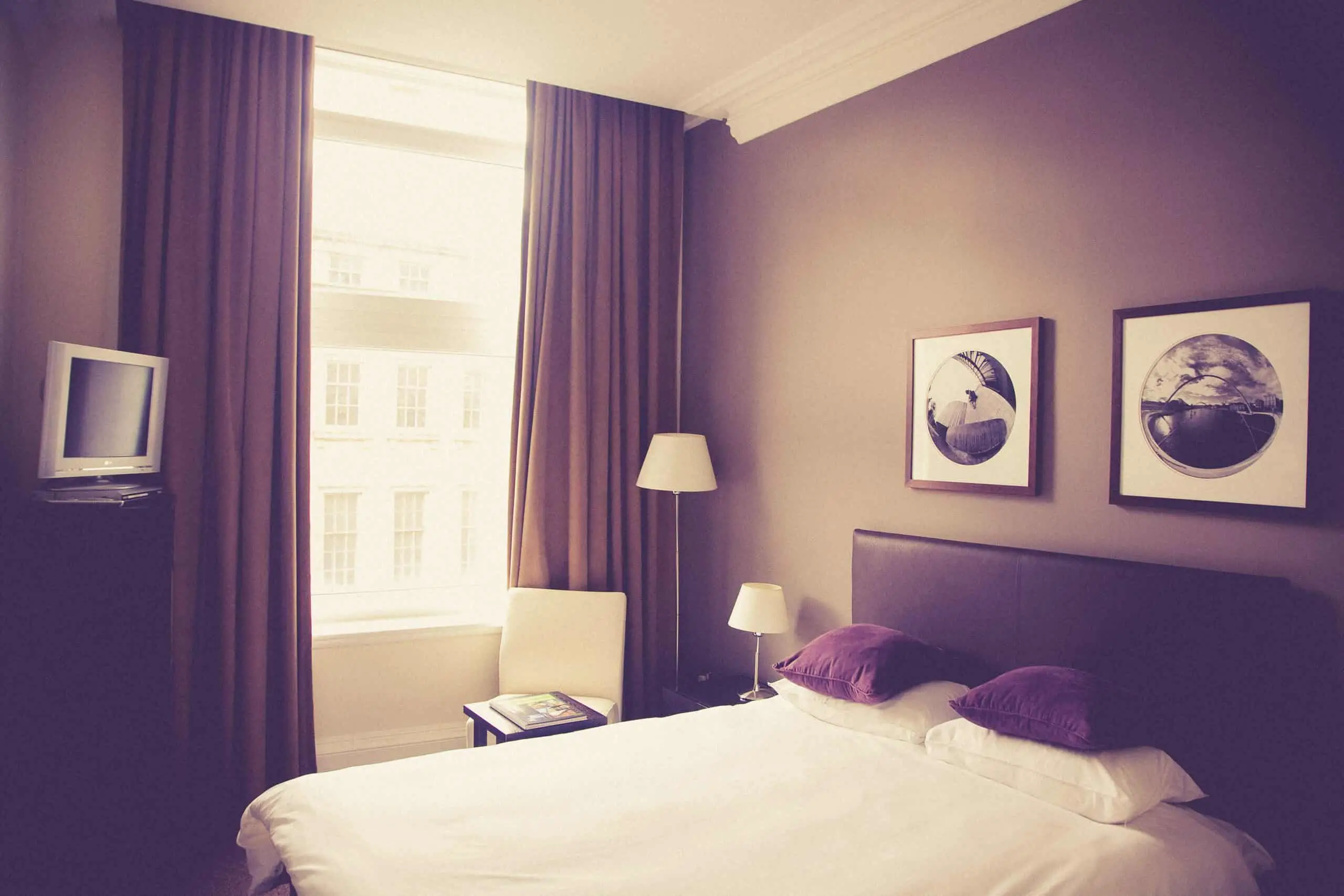If you’ve recently been trying to book hotel rooms for vacation or business trips, you know how much their prices have increased since one and a half years ago. Adit Damodaran, an economist at the travel booking app Hopper also confirms it by saying, “For every single category in travel, prices are up with the exception of international airfare.” But what are the reasons behind it?
Here are 7 reasons why hotels are so expensive:
- The hospitality industry is slowly recovering.
- More people are getting vaccinated.
- Domestic travel is booming.
- Most travelers focus on strategic locations.
- The economy is recovering.
- Hotels are upgrading their amenities.
- Hotels are more expensive in the high season.
We did some research and found interesting reasons for hotels’ high prices. While some have always been influential on hotels’ prices, others are new and noteworthy. Read on to get familiar with them.
Newly-Appeared Reasons for High Hotel Prices
Besides the factors that have always been at the heart of the hospitality sector, hotel payments have recently soared to new heights because of the current increased demand. Here are a few reasons why it has happened:
1. The Hospitality Industry Is Slowly Recovering
The hospitality industry faced a huge decline in demand during the COVID-19 pandemic. After a significant rise of 66% in 2019, the average hotel occupancy dropped to 24.5% in April 2020. So, many hotels closed down, especially the luxury ones.
But we’re expecting the rate to reach 52.5% by late 2021 and even more in 2022/2023.
With the reopening of hotels and major attractions around the country and the lifting of travel restrictions by the government, leisure travel has increased notably this summer. More than 56% of Americans report they plan to travel for leisure this year.
However, “There’s just a finite number of hotel rooms, and there’s an extraordinary level of demand,” as Henry Harteveldt, travel industry analyst at Atmosphere Research Group says. When demand surpasses supply, prices begin to increase.
Other than that, the hotel industry was one of the economic sectors that suffered the most during the COVID-19 pandemic: According to the AHLA’s State of the Hotel Industry 2021 report, 2020 saw more than 670,000 hotel operation employment and around 4 million hospitality jobs lost because of COVID-19.
And now that demand has increased, the sector is trying to make up for the lost revenue of last year. How? By a quick increase in prices.
Travel companies use yield-management programs for pricing rooms and seats. These programs help gain the most money from passengers. They’re human-guided, and now humans are ordering them to charge as much as possible, as soon as they can.
Christopher Elliott, the founder of Elliott Advocacy, who also writes for Forbes and the Washington Post, complains that other than raising prices, travel companies add new junk fees and increase their surcharges, hoping to speed up their recovery.
2. More People Are Getting Vaccinated
Vaccination has played a key role in the soaring prices of hotels. With the deployment of effective vaccines, people gradually dared to leave quarantine and somehow get back to normal life.
Many people were craving to travel for relaxation or meet their families, and vaccination allowed them to do it safely. Even travel agencies and airlines only allow those who are fully vaccinated or their PCR test is negative to use their facilities.
According to the statistics, about 50% of the United States population are fully vaccinated, which is roughly equal to 165 million people. This is a big number and seems to be enough to grow people’s confidence to travel again.
But the available hotel rooms, especially in popular destinations, are fewer than the number of passengers. So, it’s no surprise that prices are skyrocketing.
3. Domestic Travel Is Booming

Post-pandemic travels mostly focus on domestic destinations because many countries still won’t allow US citizens to cross their borders. Besides, many major tourist attractions aren’t open yet.
Therefore, most of the traveling traffic is diverted toward the national resorts and attractions. The demand for booking hotels and rental places in more popular destinations surpasses the availability, and that’s another reason for the jump in prices.
Conventional Reasons for High Hotel Prices
Now, let’s dive into the non-pandemic reasons that make hotels so expensive.
4. Most Travelers Focus on Strategic Locations
Another factor shooting up the hotels’ costs is where they’re located. Generally, hotels in prominent business districts or near the key attractions are more popular and hard to book.
It makes sense; you prefer to be closer to places you want to visit and are willing to pay more for that.
Besides, more tourism attractions like theme parks and natural resorts are reopening across the country, affecting their nearby hotels. According to airline executives, natural attractions like beaches and mountains have been popular with travelers, and their popularity is still growing.
5. The Economy Is Recovering
When the economy is in good condition and flourishing, people have more money to spend on luxuries like fancy hotel rooms. So, it’s reasonable to see a rise in hotel prices. Hotel owners look at the national and global markets to understand how much their future guests can spend.
As a good example, consider the economic crisis during and after the pandemic, which is still affecting people.
During the COVID-19 outbreak, hotel prices dropped significantly, and one of the reasons for it was the pandemic’s long-term financial impacts on the lives of thousands of people.
However, the US and global economy are growing again, and consequently, people’s purchasing power is increasing. These promising trends have led to higher hotel prices.
Although hotel prices are still below 2019 levels, they’ve already exceeded that in popular areas—due to the higher demand than supply. For example, hotel rates in Cancun were almost $205 a night in early May, which was a massive jump from $160 in 2019.
6. Hotels Are Upgrading Their Amenities
The cutthroat competition between hotels in popular locations has led to the great diversity of rooms with many different amenities available.
Besides the standard room categories (standard, family room, and suite), options like view, room size, and the number of beds can affect the prices.
What’s more, hotels usually provide a variety of amenities. These may range from basic room facilities like a fridge, coffee maker, TV with cable, shampoo, and towels, to outside room facilities such as a swimming pool, parking, dining options, and entertaining activities.
Some more luxurious hotels offer extravagant amenities that wow you: Sony PlayStation 4, tanning butler, safe deposit box, room service for pets, and stocked mini bar, to name a few. These all add more to the room prices—a big head has a big ache.
7. Hotel Rooms Are More Expensive in the High Season
Last but not least, a highly influential factor on hotels’ prices is time. It’s significantly important what time of the year you decide to go on vacation.
Depending on where you’re heading to, the demand in some seasons and even days skyrockets. And more demand means higher prices.
For example, hotels in tropical resorts get more expensive during the cold seasons of the year because their pleasant climate attracts more travelers.
During special holidays or on vacation seasons, room prices in popular resorts also tend to increase significantly—especially if there are local events held in them.
Even the days can affect the room prices. Demand is higher on weekends than the weekdays, and prices respond accordingly.
According to the travel website Kayak, analyzing its search data, checking in on a Friday or Saturday and checking out on Sunday is the most expensive option. On the contrary, a Sunday check-in is the cheapest, followed by Monday and Tuesday.
What’s more, the same-day hotel prices are about 10 percent less than booking a day before, says Sam Shank, the CEO, and co-founder of HotelTonight. Though, it’s not a smart decision if you’re heading to a popular destination.
All in all, if you want to save some money, find out when is off-season for your destination and try to book weekday stays.
Sources
- U.S. News & World Report: Coronavirus Pandemic Sets Hotel Industry Back 10 Years, Report Finds
- Our World in Data: Coronavirus (COVID-19) Vaccinations
- CDC: Domestic Travel During COVID-19
- The Washington Post: Travel was cheap when no one was traveling. That era is over.
- Elliott Advocacy: Why is travel so expensive now? You probably won’t like this answer
- eHotelier: 5 factors that can affect the price of your hotel rooms
- Travel Pulse: Travel Is Rebounding and Getting More Expensive
- Skyscanner: Why Hotel Prices Change so Frequently
- Five Star Alliance: What is a 5-Star Hotel?
- American Hotel & Lodging Association: AHLA’S STATE OF THE HOTEL INDUSTRY 2021
- American Hotel & Lodging Association: home page
- Kayak: Flights
- HotelTonight: home page


